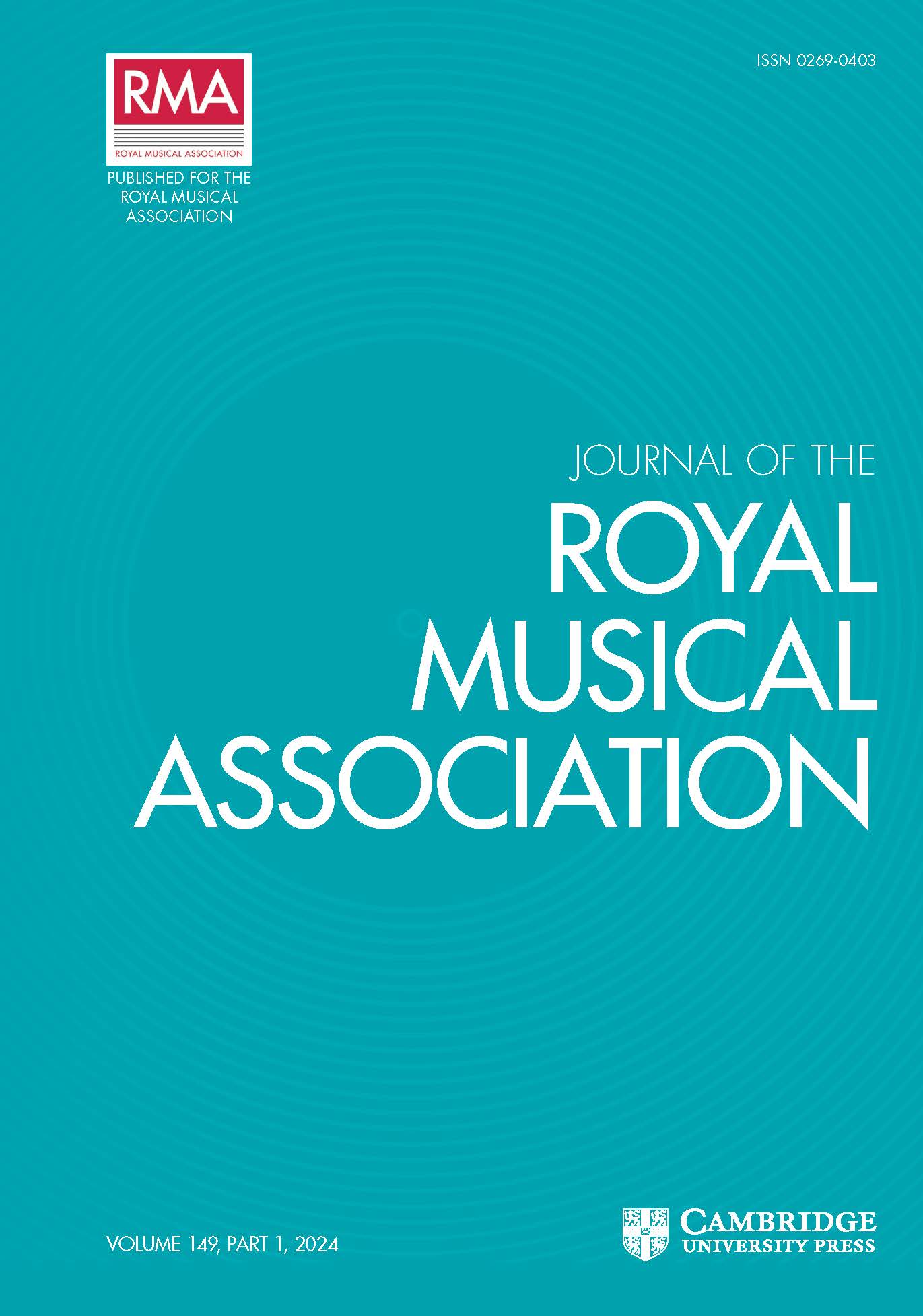Erica Buurman (erica.buurman@sjsu.edu) is Director of the Ira F. Brilliant Center for Beethoven Studies and Assistant Professor of Music at San José State University, having previously taught at Canterbury Christ Church University (2013–19). Her research interests include Beethoven, music of the late eighteenth and early nineteenth centuries, and social dance. Her monograph The Viennese Ballroom in the Age of Beethoven is forthcoming with Cambridge University Press.
Barbara Gentili (gentilib@cardiff.ac.uk) is a Leverhulme Early Career Fellow at Cardiff University. Her research interests concern the cultural history of Italian opera and operatic singing in the period 1870–1925; historical changes in vocality and performance practice; the cultural, technological and commercial impacts of early recordings; and music autoethnography. Her academic work is informed by her own performance practice as a stage and concert soprano. Her publications include an article for Music and Letters and chapters for three forthcoming edited volumes on recorded music and autoethnography to be published by Routledge.
Stephen Graham (s.graham@gold.ac.uk) is Head of the School of Arts and Humanities at Goldsmiths, University of London. His book Sounds of the Underground was published by the University of Michigan Press in 2016. He has contributed articles to Twentieth-Century Music on fringe music publishing in the 1970s and to Popular Music on The X Factor and reality television, as well as a chapter on popular modernism for the Routledge Companion to Modernism. His book on noise music is forthcoming from Bloomsbury.
Reuben Phillips (reuben.phillips@music.ox.ac.uk) is a British Academy Postdoctoral Fellow at the Faculty of Music of the University of Oxford. He received his Ph.D. from Princeton University in 2019 and was awarded the Karl Geiringer Scholarship of the American Brahms Society. He has been the recipient of an Edison Fellowship from the British Library and of fellowships from the Deutscher Akademischer Austauschdienst, the Staatliches Institut für Musikforschung in Berlin and the University of Edinburgh’s Institute for Advanced Studies in the Humanities.
Dave Russell (d.russell158@btinternet.com) taught at the University of Central Lancashire and at Leeds Metropolitan University, from where he retired as Professor of History and Northern Studies in 2010. He is the author of Popular Music in England, 1840–1914: A Social History (2nd edn, Manchester University Press, 1997) and of numerous essays and articles on the history of music and popular culture, including most recently items on the social and geographical backgrounds of British opera singers and cultures of listening in popular music.
Áine Sheil (aine.sheil@york.ac.uk) is Head of the Department of Music at the University of York. Her Ph.D. at King’s College London (2004) was on the reception and production of Wagner during the Weimar Republic. Since then she has published articles and chapters on Weimar opera discourse and practice, contemporary opera production and opera-related arts policy.
Neil Thomas Smith (ntsmusic@outlook.com) is a postdoctoral researcher at the Maastricht Centre for the Innovation of Classical Music, Maastricht University. His research interests are in contemporary musical culture, explored through a variety of topics such as buildings for music; German contemporary music; composers and opportunity culture; and composition. He completed his Ph.D. at the University of Nottingham with Robert Adlington, after studies at the University of York and the Staatliche Hochschule für Musik und Darstellende Kunst, Stuttgart. His monograph on the German composer Mathias Spahlinger was released by Intellect in 2021.
Luis Velasco-Pufleau (luis.velasco-pufleau@unibe.ch) is a Marie Skłodowska-Curie Global Fellow at the Institute of Musicology and Walter Benjamin Kolleg at the University of Berne, and at the Schulich School of Music at McGill University. His research focuses on the relationship between music, ethics and politics in the music of the twentieth and twenty-first centuries. He is also interested in exploring the political dimension of aural memories and wartime sonic environments. He is the editor of the open access research blog Music, Sound and Conflict; a member of the editorial board of the journal Transposition; and a member of the Swiss Young Academy.
Matthew Warren (matthew.j.warren@durham.ac.uk) is a doctoral student in ethnomusicology at Durham University. Having studied composition, he now engages in research to develop a sociological account of composers in academia in England and the interaction between academic structures and artistic culture. He also teaches at Durham University and University College, Isle of Man.
Flora Willson (flora.willson@kcl.ac.uk) is a Lecturer in Music at King’s College London. Her research primarily concerns the place of opera in nineteenth-century urban history and culture. She has published in journals including 19th-Century Music, Cambridge Opera Journal, Music and Letters and Opera Quarterly as well as in various edited collections, and is writing a book about networks in operatic culture in 1890s London, Paris and New York.


